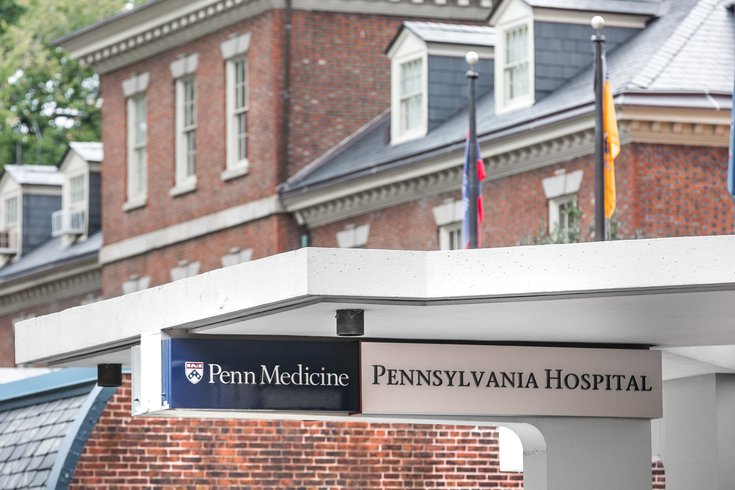
September 28, 2021
 Thom Carroll/for PhillyVoice
Thom Carroll/for PhillyVoice
Penn Medicine is offering its first childbirth class tailored toward LGBTQ+ families. The four-week, virtual class begins Oct. 26 and will run through mid-November.
Lee McClenon has guided countless families through childbirth as an instructor at Penn Medicine and through her private doula practice.
Her latest endeavor, a childbirth class geared toward the LGTBQ+ community, was inspired in part by an interaction with a family of two mothers that has stuck with her through the years.
"They came up to me at the end (of a class) and they said, 'This class is so helpful for me; I feel more confident about knowing what to expect about birth. But none of your videos have any families that look like us. None of your pictures have any families that look like us,'" McClenon said.
"I as a queer person felt, you know, I was like, 'Yeah, man, I'm not living up to my own hopes and expectations here," she added. "There are a huge number of people who give birth who don't look like a straight, married white couple. And I think that, in so many areas, we have a long way to go in representation."
Beginning in late October, McClenon will lead LGBTQ+ Birth Prep 101, a new, four-week class offered through Penn Medicine that will educate people on the stages of labor, comfort measures, common medical interventions and what to expect in the first days after childbirth. The class, which will be held virtually for now, will use gender-affirming language and content tailored specifically toward LGBTQ+ families to help them navigate what can be a difficult, alienating experience.
"There's discrimination, both explicitly and implicitly, on queer and trans families," she said. "One thing that I hope to accomplish in this class is having discussions to just support people in feeling confident as their self advocate. ... This class is going to be supportive for people thinking through, like, 'How do I want to communicate to my care team? How do I want to ask for being seen in the way that I want to be seen and the way that I think about my family?' And making sure that I receive the kind of care that I want to receive."
Writing in the Journal of Reproductive and Infant Psychology, British researchers Zoe Darwin and Mari Greenfield say the LGBTQ+ community's "experiences of conception, pregnancy, birth and parenting are under-recorded, under-researched, and under-heard." A 2019 study of parental empowerment through maternity services published in the Nordic Journal of Nursing Research' calls for health care professionals to "develop awareness and understanding of the issues experienced by these (LGBTQ) parents and their families."
"Moreover, targeted education is needed to assist in sensitivity training related to the challenges faced by LGBTQ parents in their sexual and family relationships and parenting roles," the study says. "LGBTQ parents require support and an environment in which they feel confident and comfortable disclosing their sexual identity and family composition."
McClenon, whose partner is transgender, has experience working with LGBTQ+ families in her private doula practice. She's seen firsthand how drastically queer families' comfort levels can differ in a one-on-one setting versus a larger, more traditional class. Partners who are normally very affectionate toward one another can be hesitant to do so in a classroom setting, where physical contact is key for providing comfort, she said. Additionally, queer families in larger classes may get asked questions about their conception story by other participants that they may not feel comfortable answering.
"For anybody, any person — straight, gay, cisgender, transgender — pregnancy is a vulnerable time," McClenon said. "It's a time that your body goes through a lot of changes, and people get a lot of questions no matter who they are. And it's just, you know, another level up if your body doesn't fit — or your family doesn't fit — what the expected norm is."
With her new program, McClenon hopes to bridge the gap between the two experiences, offering families the intimacy of a private session with the support that comes from being in a group setting with others who are sharing the experience.
"Having a space for LGBTQ+ people isn't only about avoiding uncomfortable questions or curiosity," she said. "There's a joy and freedom that comes from being in a room that you know doesn't have all the boxes that you don't really fit in anyway. For me personally as a cis woman, when I'm in a room of queer and trans people, I find that I don't feel so much pressure to be feminine in a particular way. I can be a bit more loud, a bit more playful, a bit more assertive. So when queer and trans people are together, we're all more likely to be more ourselves and be more natural in our relationships, as well."
LGBTQ+ Birth Prep 101 will meet virtually from 6-8 p.m. on Oct. 26 and Nov. 2, 9 and 16. The class costs $150 for up to two people to attend. Any pregnant Penn Medicine patient, including single-birth parents, who would like to be part of the class is welcome, although the health system recommends couples register for birthing classes when entering the third trimester and select a class that ends approximately three to five weeks before their due date.
To sign up for the class, visit Penn Medicine's website.